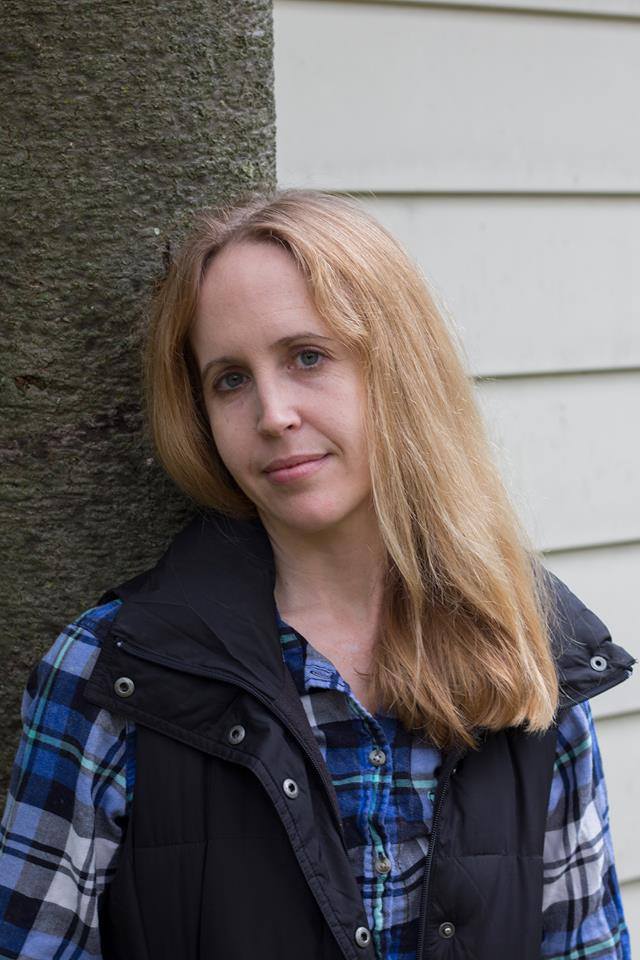At nine-years-old, I began throwing up involuntarily and missed over a month of school. Physicians threw test after test at me to make sure I was medically okay, while a psychologist tossed peculiar questions in my direction and had me play with babyish toys. Such rigorous investigations led experts to conclude that while something was clearly wrong with this child, what that “something” could be remained elusive (too bad, so sad). Thankfully, the vomiting stopped, and I tried to pretend my brief dropping out of the normal world hadn’t really happened. Despite this, a vague awareness began to grow that I was somehow different from other kids, and with that awareness came the early beginnings of shame.
The thing about childhood shame is that it grows with you, expanding grotesquely so that you’ll do almost anything (anything!) to cover it up. And so, in the years that followed, I did everything in my power to show whoever was looking (but who was looking?) just how normal I was. I focused on working hard in school, having close friends, and joining clubs, doing basically anything I could in order to “pass”. This plan worked swimmingly, until adolescence hit, bringing with it a tsunami-like wave of depression that pulled me down until I couldn’t breathe, my lungs becoming flooded with despair. Depression eventually flipped into hypomania, and I made the sudden decision to run away, convincing a friend to take off with me to Niagara Falls in the middle of a February freeze. Once again, I’d dropped out of the normal world, this time falling at a breakneck speed.
When the waves receded and my mood stabilized, what I was left with seemed no better than garbage on a beach; I was a high school dropout, a runaway, a crazy person. This time, trying to pretend that nothing had happened wasn’t so easy. Despite this, I spent the next two decades doing everything in my power to show the world (no, to show myself) that I really wasn’t the person I saw each day in the mirror. Throughout my twenties and into my thirties, no major mood shifts happened. So yes, I was married and divorced by the time I was twenty-four. So yes, I was the single mom of two children (by two dads) before I reached the age of thirty. Did I happen to mention that I was also the holder of a bright, shiny Ph.D. in clinical psychology, a degree that led me to become a psychologist, proof positive of my mental stability?
Until.
Until, at the age of forty, the waves caught up to me once again, and I was pulled underneath the surface. Despite being happily married with two more children, despite having worked for years as a psychotherapist, despite having loving parents and friends, I again dropped out of the normal world, my mood disorder trumping my ability to pass.
Since then, I’ve been unable to get a foothold on complete normalcy, each mood episode being like kindling for the next. While I’ve had periods of not being too up or too down, they haven’t lasted, leading me to no longer work as a psychologist, or to work outside of the home at all.
Until recently, my childhood shame has followed me through it all, this shame so intertwined with my sense of self that I’d almost forgotten it was a perception and a feeling, rather than a fact. When interacting with anyone not in my tight family circle, I made sure to push my “good” parts in front of me, so that they were all people got to meet. Hey everybody! I’m a psychologist and a writer, not to mention a mother of four! Look at how normal I am! Look at how together!!!
Rarely would I admit to having Bipolar Disorder, and if I actually did, I’d always specify that it was Bipolar Two (this despite the fact that my psychiatrist has only ever said I was Bipolar, End Stop, not to mention the fact most people have no freakin’ clue what the difference is between the types, anyway).
It is only in the last several months that I’ve made an active effort to not only preach acceptance about being “different”, but to actually live and breathe it. Such acceptance has been making itself known through baby steps, such as talking more openly with friends about the fact that I have a mood disorder, as well as writing about my experiences, thereby putting the “not-so-good” parts out there for anyone to see. My hope is that by doing so, I will eventually believe that no, my shame doesn’t have to own me, that I in fact own it, and, as its owner, can choose to leave it behind.
* * *
 Alicia Hendley has Bipolar Disorder. She is the mother of four children, including a son with autism. She has a Ph.D. in clinical psychology and worked for years as a psychologist. She is the author of two novels (A SUBTLE THING, TYPE), with two other books (including a memoir) to be published later this year. Alicia is an advocate within the autism community and blogs regularly for an Ontario autism website (www.autismspectrumconnection.com).
Alicia Hendley has Bipolar Disorder. She is the mother of four children, including a son with autism. She has a Ph.D. in clinical psychology and worked for years as a psychologist. She is the author of two novels (A SUBTLE THING, TYPE), with two other books (including a memoir) to be published later this year. Alicia is an advocate within the autism community and blogs regularly for an Ontario autism website (www.autismspectrumconnection.com).
Alicia can be found on her blog and Twitter
If you enjoyed this post, please take a few moments to leave a comment or use the buttons below to share with your friends.








Such a courageous post, Alicia. My bestie has bipolar (we reckon type 2 though like you her diagnosis is officially simply “bipolar disorder”). Good luck in all you are doing. ~Marty
Thanks so much for saying that, Marty! It means a lot to hear!
Obviously you know yourself better than anyone else & if you say the bipolar shoe fits, then maybe that is. But to me your history and some of the incidents you describe sound a lot more like undiagnosed adult female autism. (So much so that I read an excerpt from your book & that’s where I thought the story was going.) Curious about whether you’re aware of any of the current writing about this subject & whether any of it resonates.